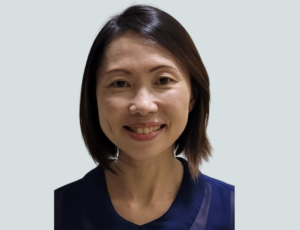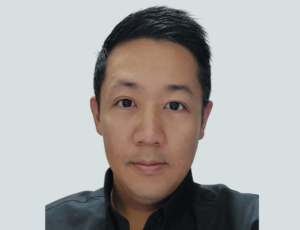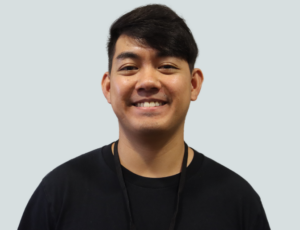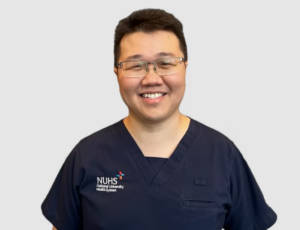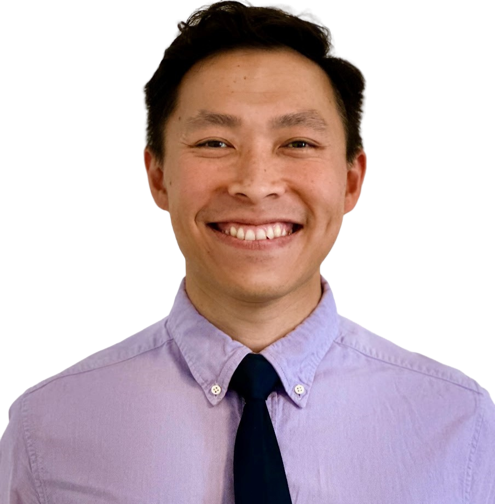
Jun Siong LOW
T and B cells are components of the immune system that are essential in fighting against infection-causing “foreign” pathogens, but are also involved in disease settings like cancer and autoimmunity where they can attack “self”. Our lab aims to understand the complex biology of T and B cells at the interplay of infection and cancer, by focusing on their phenotypic and functional profiles, antigen specificities and receptor repertoires. Our long-term goal is to develop rational and effective immune-based therapies to leverage on the immune system to fight cancer.
lowjs[at]nus.edu.sg
Principal Investigator, Cancer Science Institute of Singapore
Assistant Professor, Institute of Microbiology and Immunology
Principal Investigator, A*STAR Infectious Diseases Labs
| 2023 | NUS Presidential Young Professorship |
| 2023 | National Research Foundation Fellowship |
| 2022 | Novartis Young Investigator Grant |
| 2014 | A*STAR National Science Scholarship (BS-PhD) |
Advances in T cell-based immunotherapy over the last decade, including immune-checkpoint blockade (anti-PD1, anti-PD-L1 and anti-CTLA4) and adoptive cellular therapy (CAR-T), have significantly improved some patients’ quality of life and overall survival lifespan. Similarly, recent studies are beginning to elucidate the important roles that B cells can play in tumor regression, altogether highlighting the pivotal roles that T and B cells play in anti-tumor responses.
Our research uses high-throughput and comprehensive cell- and molecular-based approaches to understand the biology of T and B cells in different cancer settings. In collaboration with our clinical partners, our goal is to characterize T and B cells in different cohorts of cancer patients, to probe their antigen specificities and receptor repertoires and to evaluate their functions in the tumor microenvironment. In addition, we are interested in understanding how dysfunctional T and B cells can be reinvigorated and how to manipulate and engineer these cells to become more effective at killing tumor cells. Our long term goal is to harness immune-based strategies to help cancer patients.
Low JS*, Jerak J*, Tortorici MA*, McCallum M, Pinto D, Cassotta A, Foglierini M, Mele F, Abdelnabi R, Weynand B, Noack J, Montiel-Ruiz M, Bianchi S, Benigni F, Sprugasci N, Joshi A, Bowen JE, Walls, AC, Jarrossay D, Morone D, Paparoditis P, Garzoni C, Ferrari P, Ceschi A, Neyts J, Purcell LA, Snell G, Corti D, Lanzavecchia A, Veesler D and Sallusto F. ACE2 engagement exposes the SARS-CoV-2 fusion peptide to broadly neutralizing antibodies. Science, 377 (2022). PMID: 35857703
Low JS*, Vaqueirinho D*, Mele F*, Foglierini M, Perotti M, Jarrossay D, Jovic S, Terrot T, Pellanda AF, Biggiogero M, Garzoni C, Ferrari P, Ceschi A, Lanzavecchia A, Cassotta A, Sallusto F. Clonal dissection of immunodominance and cross-reactivity of the CD4+ T cell response to SARS-CoV-2. Science, 372 (2021). PMID: 34006597
Low JS, Farsakoglu Y, Amezcua Vesely MC, Sefik E, Kelly JB, Harman CCD, Jackson R, Shyer JA, Jiang X, Cauley LS, Flavell RA, Kaech SM. Tissue-resident memory T cell reactivation by diverse antigen-presenting cells imparts distinct functional responses. Journal of Experimental Medicine, 217 (2020). Cover story. PMID: 32525985
Pinto D*, Sauer MM*, Czudnochowski N*, Low JS*, Tortorici MA, Housley MP, Noack J, Walls AC, Bowen JE, Guarino B, Rosen LE, Iulio J, Jerak J, Kaiser H, Islam S, Jaconi S, Sprugasci N, Culap K, Abdelnabi R, Foo C, Coelmont L, Bartha I, Bianchi S, Silacci-Fregni C, Bassi J, Marzi R, Vetti E, Cassotta A, Ceschi A, Ferrari P, Cippà PE, Giannini O, Ceruti S, Garzoni C, Riva A, Benigni F, Cameroni E, Piccoli L, Pizzuto MS, Smithey M, Hong D, Telenti A, Lempp FA, Neyts J, Havenar-Daughton C, Lanzavecchia A, Sallusto F, Snell G, Virgin HW, Beltramello M, Corti D, Veesler D. Broad betacoronavirus neutralization by a stem helix–specific human antibody. Science, 373 (2021). PMID: 34344823
Marcinkevics R, Silva PN, Hankele AK, Dörnte C, Kadelka S, Csik K, Godbersen S, Goga A, Hasenöhrl L, Hirschi P, Kabakci H, LaPierre MP, Mayrhofer J, Title AC, Shu X, Baiioud N, Bernal S, Dassisti L, Saenz-de-Juano MD, Schmidhauser M, Silvestrelli G, Ulbrich SZ, Ulbrich TJ, Wyss T, Stekhoven DJ, Al-Quaddoomi FS, Yu S, Binder M, Schultheiß C, Zindel C, Kolling C, Goldhahn J, Seighalani BK, Zjablovskaja P, Hardung F, Schuster M, Richter A, Huang YJ, Lauer G, Baurmann H, Low JS, Vaqueirinho D, Jovic S, Piccoli L, Ciesek S, Vogt JE, Sallusto F, Stoffel M, Ulbrich SE. Machine learning analysis of humoral and cellular responses to SARS-CoV-2 infection in young adults. Frontiers in Immunology, 14 (2023). PMID: 37313411
Giannou AD, Kempski J, Shiri AM, Lücke J, Zhang T, Zhao L, Zazara DE, Cortesi F, Riecken K, Vesely MCA, Low JS, Xu H, Kaffe E, Garcia-Perez L, Agalioti T, Yamada Y, Jungraithmayr W, Zigmond E, Karstens KF, Steglich B, Wagner J, Konczalla L, Carambia A, Schulze K, Felden J, May P, Briukhovetska D, Bedke T, Brockmann L, Starzonek S, Lange T, Koch C, Riethdorf S, Pelczar P, Böttcher M, Sabihi M, Huber FJ, Reeh M, Grass JK, Wahib R, Seese H, Stüben BO, Fard-Aghaie M, Duprée A, Scognamiglio P, Plitzko G, Meiners J, Soukou S, Wittek A, Manthey C, Maroulis IC, Arck PC, Perez D, Gao B, Zarogiannis SG, Strowig T, Pasqualini R, Arap W, Gosálvez JS, Kobold S, Prinz I, Guse AH, Tachezy M, Ghadban T, Heumann A, Li J, Melling N, Mann O, Izbicki JR, Pantel K, Schumacher U, Lohse AW, Flavell RA, Gagliani N, Huber S. Tissue resident iNKT17 cells facilitate cancer cell extravasation in liver metastasis via interleukin-22. Immunity, 56 (2023). PMID: 36630911
Marzi R, Bassi J, Silacci-Fregni C, Bartha I, Muoio F, Culap K, Sprugasci N, Lombardo G, Saliba C, Cameroni E, Cassotta A, Low JS, Walls AC, McCallum M, Tortorici MA, Bowen JE, Dellota EA, Dillen JR, Czudnochowski N, Pertusini L, Terrot T, Lepori V, Tarkowski M, Riva A, Biggiogero M, Franzetti-Pellanda A, Garzoni C, Ferrari P, Ceschi A, Giannini O, Havenar-Daughton O, Telenti A, Arvin A, Virgin HW, Sallusto F, Veesler D, Lanzavecchia A, Corti D, Piccoli L. Maturation of SARS-CoV-2 Spike-specific memory B cells drives resilience to viral escape. Iscience, 26 (2023). PMID: 36507220
Bowen JE, Park YJ, Stewart C, Brown JT, Sharkey WK, Walls AC, Joshi A, Sprouse KR, McCallum M, Tortorici MA, Franko NM, Logue JK, Mazzitelli IG, Nguyen AW, Silva RP, Huang Y, Low JS, Jerak J, Tiles SW, Ahmed K, Shariq A, Dan JM, Zhang Z, Weiskopf D, Sette A, Snell G, Posavad CM, Iqbal NT, Geffner J, Bandera A, Gori A, Sallusto F, Maynard JA, Crotty S, Van Voorhis WC, Simmerling C, Grifantini R, Chu HY, Corti D, Veesler D. SARS-CoV-2 spike conformation determines plasma neutralizing activity elicited by a wide panel of human vaccines. Science Immunology, 7 (2023). PMID: 36356052
Kelly JB, Carlson DE, Low JS, Thacker RW. Novel trends of genome evolution in highly complex tropical sponge microbiomes. Microbiome, 10 (2022). PMID: 36195901
Chandiran K, Suarez-Ramirez JE, Hu Y, Jellison ER, Ugur Z, Low JS, McDonald B, Kaech SM, Cauley LS. SMAD4 and TGFβ are architects of inverse genetic programs during fate determination of antiviral CTLs. Elife, 11 (2022). PMID: 35942952
Xu S, Chaudhary O, Rodríguez-Morales P, Sun X, Chen D, Zappasodi R, Xu Z, Pinto AFM, Williams A, Schulze I, Farsakoglu Y, Varanasi SK, Low JS, Tang W, Wang H, McDonald B, Tripple V, Downes M, Evans RM, Abumrad NA, Merghoub T, Wolchok JD, Shokhirev MN, Ho P, Witztum JL, Emu B, Cui G, Kaech SM. Uptake of oxidized lipids by the scavenger receptor CD36 promotes lipid peroxidation and dysfunction in CD8+ T cells in tumors. Immunity, 54 (2021). PMID: 34102100


